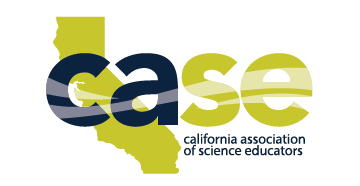
Short Courses
REGISTRATION IS NOW OPEN

Add Short Course, Field Tour and Sound of Music to your Conference Experience.
SHORT COURSES
Want to dig deeper? Excited to learn from seasoned experts in the field? Wish you could have a guaranteed seat in the room? Do you enjoy a smaller session with more presenter interaction? Then conference short courses are calling your name!
CSTA is proud to present an amazing lineup of 16 short courses for this year's conference. There short course are designed to help you dig deeper into NGSS, engineering design, and more. Each short course's duration is three to six hours, giving you the chance to really interact and make sense of the material.
Short courses are ticketed events, guaranteeing you a seat in the room and relevant hand-outs. You will have hands-on experiences that are designed to help you envision relevant to use in your classroom. Many short courses will also provide you with sample materials that are ready for use. Be sure to sign up for these soon—we expect these short courses will sell out fast this year!
If you are in need of support by your district, you can remind your administrator that the District's Local Control Accountability Plan (LCAP) Priority #2 supports the implementation of the state's academic standards. CSTA's Conference on Science Education will provide you with short courses that will help you with this. All short courses support the California Next Generation Science Standards (NGSS), the California Common Core State Standards, or both. The short course descriptions below include the following information:
- title and brief description
- ticket price
- grade level that the course is best suited for
- the science that is the focus of the presentation
- the emphasis (up to three) of the course
- the name of the lead presenter and their affiliation
Friday, October 13 - 2:30 pm - 5:30 pm
SC1: Lesson Learned: The Cutting Edge of NGSS Implementation
Are you a teacher leader, administrator, or professional development provider leading the implementation of the NGSS? This session is for you! Hear real stories about the successes and challenges of implementation and learn about tools and processes to help you.
- Tickets: $20
- Grade Level: All (Not Grade Level Specific)
- Science & Emphasis: All Sciences; Leadership
- Presenters: Kathy DiRanna, Statewide Director, K-12 Alliance and David Tupper, CalMSP Project Director/TOSA, Lakeside Union School District
SC2: Mindful Grouping to Provide Access: All Standards, All Students
Critical examination of student work leads to planning next instructional steps. Participants will use protocols for examining the three dimensions of the NGSS elicited from student work; leaving with an NGSS-aligned lesson and a solid process to analyze student work.
- Tickets: $10
- Grade Level: All (Not Grade Level Specific)
- Science & Emphasis: Physical Sciences; Assessment; Leadership; 3-Dimensional Learning
- Presenters: Anna Newman, Science Coordinator, Alameda COE IMSS and Dawn O'Connor, Director of Science, Alameda COE
SC3: Engineering for Earthquakes
Experience a 3-dimensional NGSS lesson sequence to explore the science content behind an Earthquake engineering task in solving the problem of building to withstanding a 7.0 Richter scale earthquake.
- Tickets: $15
- Grade Level: Middle School (6 - 8)
- Science & Emphasis: Earth/Space Sciences and Engineering; Beef Up on Content and 3-Dimensional Learning
- Presenter: Robert Sherriff, Science Teacher, Churchill Middle School
SC4: Developing a Conceptual Model
Developing a model is a fascinating process! Teachers participate in a three-dimensional modeling lesson about sound. Then teachers learn the techniques for creating a modeling lesson on a topic of their choice with the time and support to do so.
- Tickets: $25
- Grade Level: Upper Elementary, Middle School (integrated and domain specific) (Grades 3-8)
- Science & Emphasis: Physical Science; 3-Dimensional Learning; Pedagogy; SEPs
- Presenters: Nathan Fairchild, Shasta County office of Education Science/STEM
SC5: Three-Dimensional Culture: Creating Agency and Efficacy in NGSS Classrooms
Class culture trumps everything! Creating culture is more than growth mindset slogans. Participants will engage in activities to create, maintain and solidify positive classroom culture. Everyone will leave with activities designed to assist in all three phases of classroom culture.
- Tickets: $50
- Grade Level: Middle and High School (all course models) (Grades 6-12)
- Science & Emphasis: All Sciences; 3-Dimensional Learning; Pedagogy; SEPs
- Presenters: Jim Clark, District Science Coordinator, San Lorenzo USD and Samantha Johnson, Science Teacher, Arroyo High School
SC17: Transforming Preservice Methods Courses to Prepare Candidates for the NGSS Classroom
If you teach science methods courses (MSCP or SSCP) you need to attend this session! We’ll share ideas that ALL future California teachers should know about NGSS. Lessons and activities that model the 3 dimensions of NGSS will be provided to help you help prospective teachers better understand what NGSS-aligned lessons look and feel like and model facilitation of what this would look like in a methods course. The goal would be for our pre-service teachers to become more comfortable and confident with NGSS and the California Curriculum Framework. Additionally, you’ll find out the latest NGSS news in California and learn ways to be more connected and informed. (We’ll include material for both MSCP and SSCP methods courses.) When you sign-up, please indicate if you teach elementary methods, secondary methods or both.
- Tickets: $20
- Grade Level: All (Not Grade Level Specific)
- Science & Emphasis: All Sciences; NGSS 3-Dimensional; Leadership
- Presenters: Brian Foley, Professor of Secondary Science Education, CSU Northridge; Susan Gomez-Zwiep, Professor, Science Education, CSU Long Beach; Laura Henriques, Professor, Science Education, CSU Long Beach; and Virginia Oberholzer Vandergon, Professor, Department of Biology, CSU Northridge
Saturday, October 14 - 8:30 am - 11:30 am; and 3:00 pm - 6:00 pm
Part 1: 8:30 am - 11:30 am
Part 2: 3:00 pm - 6:00 pm
SC6: Computational Thinking and Modeling in Physics with NetLogo Simulations
Come find out how to integrate computer simulations into your high school science course by having students USE, MODIFY, and CREATE NetLogo models. This workshop focuses on Physics, but this strategy can be used in all high school science disciplines.
- Tickets: $10
- Grade Level: High School (3- and 4-course models)
- Science & Emphasis: Physics; Computer Science in Science; Technology Integration; SEPs
- Presenters: Dean Reese, Tracy High School and Stephan Unterholzner, Teacher, Sierra High School
SC8: Next Generation Science Notebooks As a Tool for Sense-Making
Explore how to use science notebooks to support student meaning-making. Participate in an engaging learning sequence and leave with strategies for how to set up science notebooks and use them to support three-dimensional learning.
- Tickets: $10
- Grade Level: Primary and Upper Elementary (Grades K-5)
- Science & Emphasis: All Sciences; Common Core-Literacy; Pedagogy; SEPs
- Presenter: Kathryn Danielson, Senior Associate Teacher Prof. Dev. California Academy of Sciences and Shumit DasGupta, Teacher Educator and Instructional Coach, California Academy of Sciences
Saturday, October 14 - 8:30 am - 11:30 am
SC7: Integrating Science Learning with English Language and Literacy Development
This course will guide teachers in developing a coherent series of science lessons that simultaneously integrate NGSS aligned core science ideas with English language and literacy Development. Teachers will both experience lessons and analyze authentic science texts to plan instruction. This course was initially advertised by mistake as a six-hour course.
- Tickets: $10
- Grade Level: High School (4-course model)
- Science & Emphasis: Biology; English Learner/English Language Development
- Presenters: Edward Lyon, Assistant professor, Science Education Curriculum Studies and Secondary Education
SC9: Equity & Science Education
This course will address some of the assumptions, values, and practices that hinder equal access to science for students of color. Participants will experience proven strategies that will enhance their cultural competency, heighten their diversity awareness, and expand their perspectives on racism and racial bias.
- Tickets: $35
- Grade Level: All (Not Grade Level Specific)
- Science & Emphasis: All Sciences; Leadership; English Learner/English Language Development; Informal Science Education
- Presenter: Gary Nakagiri, Science Consultant and Jerry Valadez, Director, Central Valley Science Project California State University, Fresno
SC10: Teaching CA NGSS Through Environmental Literacy
Teams of teachers and administrators will examine classroom examples and how California’s Science Framework interconnects implementation of CA NGSS, California’s Environmental Principles and Concepts, and environmental literacy. They will discuss instructional opportunities and implementation strategies, and learn about available resources.
- Tickets: $20
- Grade Level: All (Not Grade Level Specific)
- Science & Emphasis: Environmental Literacy; 3-Dimensional Learning; Pedagogy; Informal Science Education
- Presenter: Gerald Lieberman, Director, State Education & Environment Roundtable and Craig Strang, Associate Director, UC Berkeley Lawrence Hall of Science
SC11: Where Did the Apple Go? Unearthing the Design of an NGSS Decomposition Unit
Come experience and expose the framework of an NGSS unit. You’ll think like a student, engaging in science practices to answer a question. You’ll also think like a teacher, learning to design a unit with an anchoring phenomenon and question.
- Tickets: $10
- Grade Level: Primary and Upper Elementary (Grades K-5)
- Science & Emphasis: Life Science; 3-Dimensional Learning; Pedagogy; SEPs
- Presenters: Amelia Rosenman, Senior Associate Teacher Prof. Dev. California Academy of Sciences Teacher Professional Development and Clea Matson, Teacher Educator and Coach, California Academy of Sciences
Saturday, October 14, 3:00 pm - 6:00 pm
SC12: Make Every Minute Count: A Winning Solution to Integrating Life Science 3D NGSS and Literacy CCSS/ELA in K-2 Classrooms
This primary “Early Implementer” team will share Life Science learning sequences designed to deepen understanding for K (plants, animal needs), 1 (external parts, functions) and 2 (pollination ,seed dispersal) linked to CCSS ELA using note booking and scaffolding strategies. [CA NGSS K-8 Early Implementer - Conference Partner Presentation]
- Tickets: $10
- Grade Level: Primary (Grades TK-2)
- Science & Emphasis: Life Science; Common Core-Literacy; 3-Dimensional Learning
- Presenter: Dana Nielsen, Teacher, Doyle Elementary and Debbie Gordon, Teacher, Vista Del Monte Elementary
SC13: Chemistry Experiments and Experiences (ChemEx2)
Experience multi-use experiments to foster student learning and re-engineer experiments for deeper understanding. Incorporate argumentation into your chemistry curriculum. These experiments, designed and vetted by Stanford University Department of Chemistry, are aligned with NGSS and CCSS.
- Tickets: $30
- Grade Level: High School (all course models) and Post-Secondary (Grades 9-13+)
- Science & Emphasis: Chemistry and Physical Science; Classroom Management/Engagement; DCIs; SEPs
- Presenter: Katrina Rotter, Science Teacher, Lowell High School and Sally Seebode,Educator, San Mateo High School;
SC14: Moving Towards 3-Dimensional Assessment: Hands-on Performance Tasks in Grades 6-8
Explore hands-on performance assessment and its relationship to students’ mastering Common Core and Next Generation Science Standards. Engage in a hands-on task, use this protocol to develop tasks of your own, and take home a sample student set-up.
- Tickets: $30
- Grade Level: Middle School (all models) (Grades 6-8)
- Science & Emphasis: Earth/Space Sciences; Assessment; 3-Dimensional Learning; SEPs
- Presenters: Deborah Tucker, Independent Science Education Consultant and Grant Gardner, President, Assessment Services, Inc.
SC15: Introduction to Citizen Science in the Elementary Classroom
In citizen science, students contribute to science by collecting data that scientists use to generate new knowledge. Participants will learn what citizen science is, what it looks like in the elementary classroom, and our research based framework for designing projects.
- Tickets: $10
- Grade Level: Primary and Upper Elementary (Grades K-5)
- Science & Emphasis: EP&Cs/Environmental Literacy; Life Science; SEPs
- Presenter: Erin Bird, Doctoral Student, UC Davis School of Education and Peggy Harte, Teacher, Tremont Elementary School
SC16: Effective ELD Strategies for Science & Language Learning for All Students
Join us for a 3-dimensional experience in science learning and language development as we explore guiding principles and strategies for integrated and designated ELD in science. Receive a toolkit for developing science/ELD lessons and supporting student engagement in the practices.
- Tickets: $15
- Grade Level: Upper Elementary and Middle School (all models) (Grades 3-8);
- Science & Emphasis: Physical Science; English Learner/English Language Development; 3-Dimensional Learning; SEPs
- Presenter: Diana Velez, K-5 Specialist, UC Berkeley Lawrence Hall of Science and Claudio Vargas, Coordinator, Elementary Science Oakland Unified School District
Upcoming Conferences
- 2024 Conference
November 8-10
Sacramento, CA - 2025 Conference
October 17-19
Palm Springs, CA


